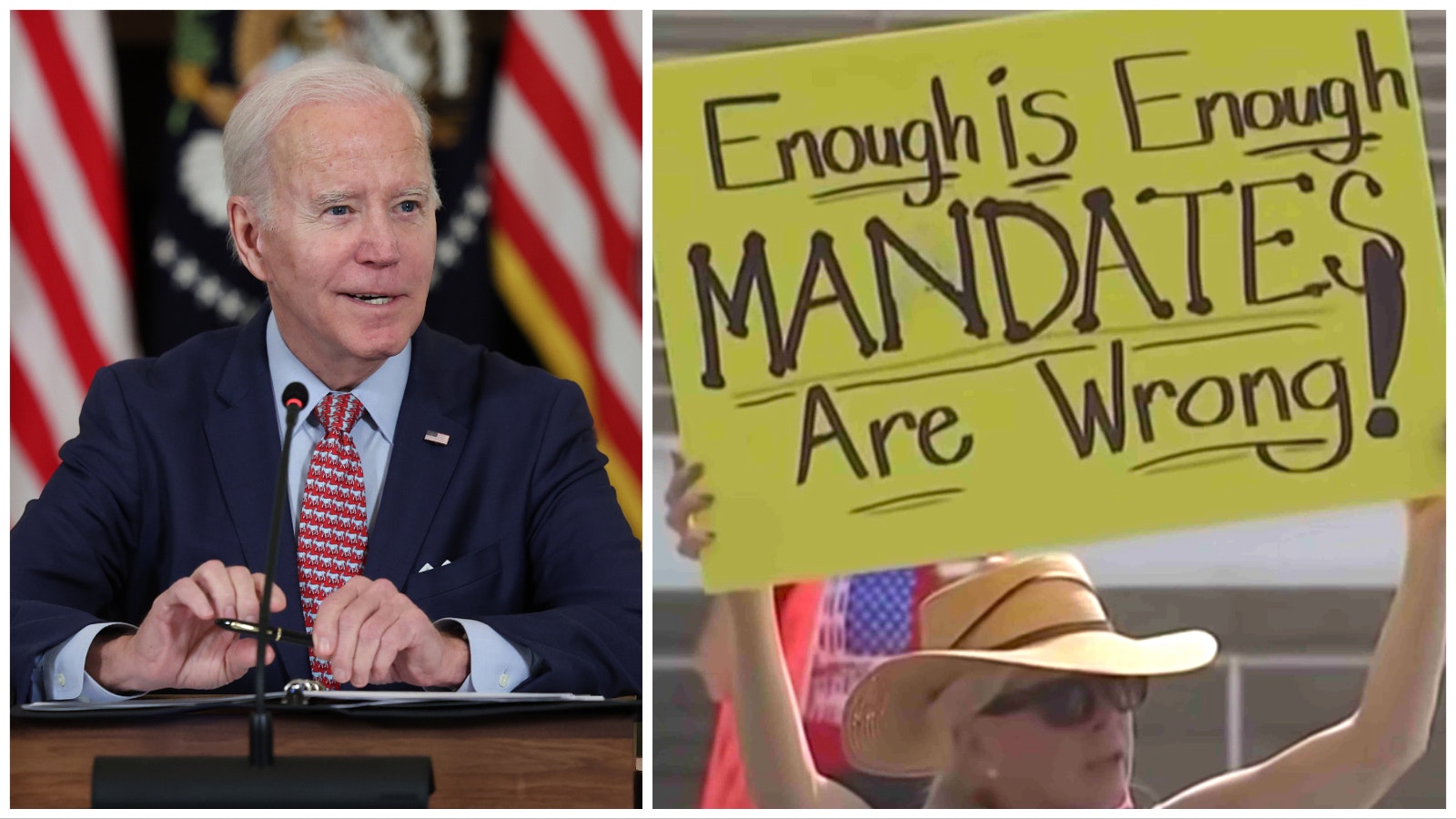President Joe Biden signed a Republican-sponsored bill Monday ending the COVID-19 national health emergency, the White House announced in a one-sentence statement.
Wyoming has been ready for this since pandemic policies first went into effect in 2020, said a state lawmaker who specializes in health-related legislation.
“The (Wyoming) Department of Health has been preparing for the national health emergency to end for three years,” Rep. Lloyd Larsen, R-Lander, told Cowboy State Daily on Monday evening. “Seriously.”
President Donald Trump declared the health emergency March 14, 2020, amid a public campaign titled “15 Days to Slow the Spread.”
The emergency declaration prompted federal agencies to make numerous COVID-related rules and sparked multiple court cases, some rising to the U.S. Supreme Court level. It changed the way states and providers could approach health issues.
But at this point, the emergency’s end won’t affect Wyoming much, said Larsen, and the state has been bracing itself for the change for a long time.
Rep. John Bear, chairman of the social-conservative legislators' group the Wyoming Freedom Caucus, told Cowboy State Daily that he, too, has been ready for the emergency to end since 2020.
"It's about time," said Bear. "I felt like it was a big overreaction. We didn't know at first but the more evidence that comes out, the worse our federal government looks to the people of this country."
Vax For Health Care Workers
Larsen said the state hasn’t received clear guidance on whether the national health emergency’s end will cause the Centers for Medicare and Medicaid Services to remove its requirement for staff of certified providers to be vaccinated.
CMS in October dispatched an updated vaccine requirement memo that allows providers receiving Medicare and Medicaid funding to police vaccine-compliance less frequently, but it still requires health care workers be vaccinated for COVID-19.
“CMS expects all facilities’ staff to have received the appropriate number of doses,” reads the memo in 15 different sections addressing various providers, including hospitals and nursing homes. “Facility staff vaccination rates under 100% of unexcepted staff constitute non-compliance under the rule.”
The U.S. Supreme Court last year ruled that CMS could enforce vaccine requirements on employees in certified facilities.
But the high court invalidated a broader rule that the Occupational Safety and Health Administration applied to private workers in businesses with 100 employees or more.
Larsen said the CMS vaccine requirement did not altogether cause Wyoming’s shortage of health workers, but it exacerbated it.
No Tele-Testosterone
Most people aren’t sure how federal agencies will react to lifting the national COVID-19 emergency.
Wyoming Equality, an LGBTQ advocacy group in the state, warned its followers that the Drug Enforcement Agency (DEA) could remove transgender people’s ability to access hormones through telehealth or remote health care services.
“It’s likely that it will no longer be legal for testosterone treatment to be prescribed using telehealth alone,” wrote Wyoming Equality on its Facebook page. “You will need at least one in-person visit with your provider to get started.”
The group anticipates that patients who meet with their providers may be able to receive testosterone from telehealth providers after that.
The DEA is not yet providing clear guidance on the matter, however.
No ‘Significant Changes’ At This Point
Medicaid enrollment swelled by more than 27% in about two-and-a-half years when the federal government forbade states from disenrolling ineligible participants, according to healthinsurance.org.
But Wyoming and other states have been allowed to disenroll people since April 1, when the Consolidated Appropriations Act removed the link between the continuous enrollment requirement and state Medicaid systems.
Wyoming Department of Health spokeswoman Kim Deti said Biden signing the official end into law doesn’t make a huge difference at this point.
“We would not expect significant changes in Wyoming Department of Health plans or operations with that action at this point in time,” said Deti in a Monday text to Cowboy State Daily.
The Consolidated Appropriations Act going into effect “was a (more) significant development,” she added.
Larsen said the rate at which the federal government reimburses Wyoming for Medicaid expenses is scheduled to wane slowly, from 56.5% down to its pre-pandemic rate of 50%.
“(That was a) pretty significant general-fund cost savings to the state, to have that enhanced rate,” said Larsen.
He said that though Wyoming’s Medicaid rolls swelled along with the rest of the nation, the extra enrollees used the system minimally. He described the added enrollees, coupled with the extra federal match, as cancelling each other out somewhat to keep providers’ Medicaid rates fairly steady.
Larsen said the health department has been contacting people for weeks to let them know their eligibility is running out.
Wyoming only can disenroll 1/12th of its ineligible participants each month, he added, which makes the cutoff happen gradually.
Gov. Mark Gordon ended Wyoming’s public health emergency more than a year ago in March 2022.





